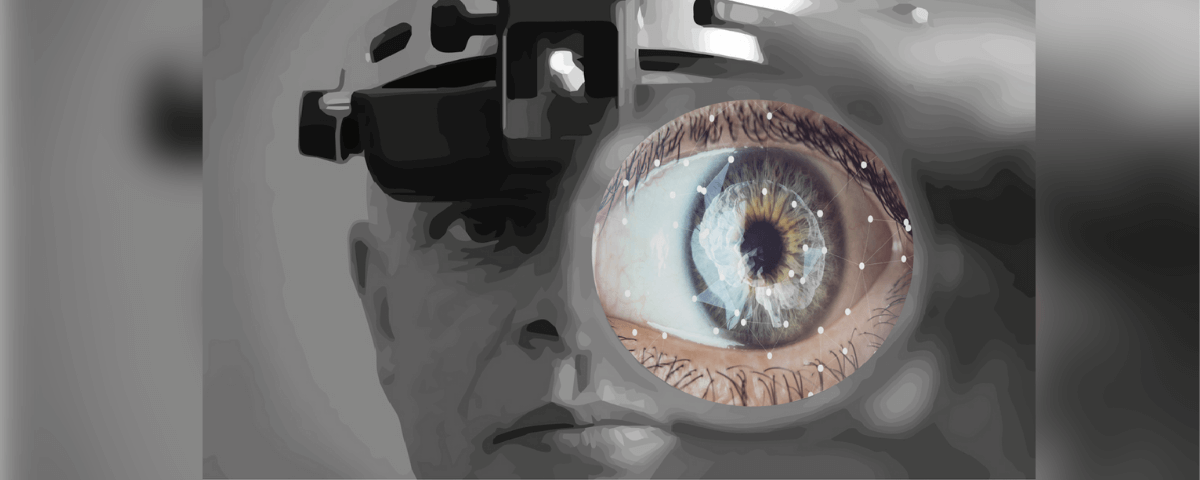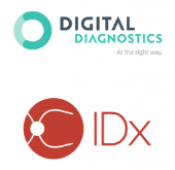
FDA Updates – July 2021
July 1, 2021
Article of the Month – July 2021
July 1, 2021Michael Abramoff

Michael David Abramoff is an ophthalmologist and computer scientist born in Rotterdam, the Netherlands. He earned a Master in Sciences in computer science and a Doctor of Medicine (MD) degree at the University of Amsterdam. He obtained an ophthalmology specialization at the University Medical Center of Utrecht. Then pursued and achieved a fellowship in Surgical Retina at the Vrije Universiteit Amsterdam (literal translation “Free University Amsterdam”), which he completed simultaneously with a Ph.D. in Medical Imaging at the Utrecht University.(1,2)
These three institutions have been ranked in the 2021 World University Ranking by the Times Higher Education above the 120th place. During his life, Dr. Abramoff has received many awards. Some of them include the Peter Reichertz Prize for the best young researcher, President’s Innovation Award, and the Charles D. Phelps Memorial Award for Glaucoma research.(1,3)
Light in the blindness
During his years of residency and preparation, Dr. Abramoff faced a frightening reality: inefficiency in the health care providing process was helpless in fighting diabetic retinopathy and preventing blindness as a complication of the former. When facing this problem, and considering the knowledge acquired during his postdoctoral research fellowship in RIKEN neural network research labs in Tokyo and his professional experience in image analysis, he foresaw the potential solution in machine learning and artificial intelligence. The idea was straightforward, to detect patients with diabetic retinopathy in the early stages of the disease to provide better therapeutic options. Despite the difficulties and obstacles that resistance to change and innovation impose, Dr. Abramoff started developing computer algorithms that would allow machines to detect diabetic retinopathy.(2,4)
Growing problems with delayed solutions
In 2015 the American Academy of ophthalmologists estimated that the number of active ophthalmologists in the United States was around 19,216. Data also showed that Diabetic retinopathy affected approximately 7.7 million people over 40 years old, placing about 400 patients at a minimum per ophthalmologist in the US, which means there are not enough ophthalmologists worldwide to treat the increasing number of diabetes cases seen in the last decades. These patients’ management depends on the severity of the retinopathy, ranging from an annual follow-up to invasive surgery, such as vitrectomy-requiring procedures. This makes the retinopathy staging by qualified means a necessary process.(5)
Although the incidence of diabetes and diabetic retinopathy is estimated to increase in the following years, the number of severe forms of diabetic retinopathy and complications is expected to decrease as glycemic control is directly tied to the development of microvascular complications. The improvement of efficient glycemic care therapies developed in the last years and the promotion of these measures by physicians have positively impacted the outcomes of these cases. However, it is still recommended that all patients with diabetes undergo screening and evaluation for diabetic retinopathy.(6)
A short offer for a demanding need
Using machines, especially autonomous artificial intelligence, to perform a classically attributed task to physicians is a controversial yet promising point. The steady increase of individuals developing diabetes requires widespread screening and stratification of those that would benefit from early therapies to avoid or lessen the severe complications caused by this disease. The current deficit of ophthalmologists persists as one of the significant obstacles to tackle effectively one of the leading causes of blindness worldwide. As a result, as low as 15% of patients that required diabetic retinopathy examinations were getting one. Dr. Abramoff’s project targeted this situation directly: creating a device that would automatically perform the screening and, with evidence-based reliability, stratify patients into those who required an ophthalmology consultation and those who do not.(4)
A short offer for a demanding need.
Using machines, especially autonomous artificial intelligence, to perform a classically attributed task to physicians is a controversial yet promising point. The steady increase of individuals developing diabetes requires widespread screening and stratification of those that would benefit from early therapies to avoid or lessen the severe complications caused by this disease. The current deficit of ophthalmologists persists as one of the significant obstacles to tackle effectively one of the leading causes of blindness worldwide. As a result, as low as 15% of patients that required diabetic retinopathy examinations were getting one. Dr. Abramoff’s project targeted this situation directly: creating a device that would automatically perform the screening and, with evidence-based reliability, stratify patients into those who required an ophthalmology consultation and those who do not.(4)

An expert’s triage in primary care
Michael Abramoff founded Digital Diagnostics (formerly known as IDX technologies, Inc.) in 2010. It took him eight years to develop the first autonomous artificial intelligence device ever to be approved by the FDA after showing a sensitivity and specificity of 87% and 90% respectively for detecting diabetic retinopathy and decreasing screening costs by 77-86%. The device has been validated reliably in primary care offices with all kinds of patients and has shown efficient, safe, and equitable care.(4,6)
An expert’s triage in primary care

Michael Abramoff founded Digital Diagnostics (formerly known as IDX technologies, Inc.) in 2010. It took him eight years to develop the first autonomous artificial intelligence device ever to be approved by the FDA after showing a sensitivity and specificity of 87% and 90% respectively for detecting diabetic retinopathy and decreasing screening costs by 77-86%. The device has been validated reliably in primary care offices with all kinds of patients and has shown efficient, safe, and equitable care.(4,6)
Bright sight for future generations
Nowadays, he continues to be the executive chairman of Digital Diagnostic, which is currently incorporating dermatology telemedicine services and imaging assisting tools and incurring in the research and development of Autonomous intelligence devices for dermatology.(4)
He has also founded two more companies and invented sixteen issued patents. Dr. Abramoff also performs as a professor of Electrical and Computer Engineering, Biomedical Engineering, and Ophthalmology at the University of Iowa; and an Editorial Board Member for the Investigative Ophthalmology and Visual Sciences.(1)

References
